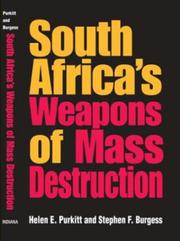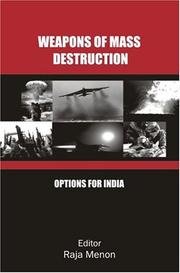| Listing 1 - 10 of 63 | << page >> |
Sort by
|
Book
ISBN: 9070311445 Year: 1992 Publisher: Leiden Pica
Abstract | Keywords | Export | Availability | Bookmark
 Loading...
Loading...Choose an application
- Reference Manager
- EndNote
- RefWorks (Direct export to RefWorks)
Book
Year: 2012 Publisher: Washington : U.S. G.P.O.,
Abstract | Keywords | Export | Availability | Bookmark
 Loading...
Loading...Choose an application
- Reference Manager
- EndNote
- RefWorks (Direct export to RefWorks)
Television broadcasting --- Consolidation and merger of corporations --- Competition --- Comcast Corporation. --- NBC Universal Television. --- United States.
Book
Year: 2013 Publisher: Washington : U.S. Government Printing Office,
Abstract | Keywords | Export | Availability | Bookmark
 Loading...
Loading...Choose an application
- Reference Manager
- EndNote
- RefWorks (Direct export to RefWorks)
Book
ISBN: 1280697245 9786613674203 0809386747 1441645667 9781441645661 9780809386741 0809329190 9780809329199 9780809386741 9781280697241 6613674206 Year: 2009 Publisher: Carbondale Southern Illinois University Press
Abstract | Keywords | Export | Availability | Bookmark
 Loading...
Loading...Choose an application
- Reference Manager
- EndNote
- RefWorks (Direct export to RefWorks)
Radio broadcasting policy --- Radio broadcasting --- History --- Social aspects --- NBC Advisory Council.
Book
Year: 2011 Publisher: Washington : U.S. G.P.O.,
Abstract | Keywords | Export | Availability | Bookmark
 Loading...
Loading...Choose an application
- Reference Manager
- EndNote
- RefWorks (Direct export to RefWorks)
Cable television --- Consolidation and merger of corporations --- Competition --- Law and legislation --- NBC Universal Television. --- Comcast Corporation.
Book
ISBN: 9782702167359 Year: 2019 Publisher: S.L. Calmann-Lévy
Abstract | Keywords | Export | Availability | Bookmark
 Loading...
Loading...Choose an application
- Reference Manager
- EndNote
- RefWorks (Direct export to RefWorks)
2017 --- NBC --- Ronan Farrow --- Hollywood --- prédateurs sexuels --- l’affaire Harvey Weinstein --- intimidation --- femmes

ISBN: 0253003067 9786612238253 1282238256 9780253003065 9780253345066 0253345065 9780253217301 025321730X 0253345065 025321730X 6612238259 9781282238251 Year: 2005 Publisher: Bloomington, Ind. Indiana University Press
Abstract | Keywords | Export | Availability | Bookmark
 Loading...
Loading...Choose an application
- Reference Manager
- EndNote
- RefWorks (Direct export to RefWorks)
South Africa's Weapons of Mass Destruction offers an in-depth view of the secret development and voluntary disarmament of South Africa's nuclear, biological, and chemical weapons program, Project Coast. Helen E. Purkitt and Stephen F. Burgess explore how systems used for nuclear, biological, and chemical weapons in South Africa were acquired and established beyond the gaze of international and domestic political actors. On the basis of archival evidence from Project Coast and their own extensive interviews with military and political officials, Purkitt and Burgess consider what motivates countries to acquire and build such powerful weaponry and examine when and how decisions are made to dismantle a military arsenal voluntarily. Questions such as how to destroy weapons safely and keep them from reappearing on international markets are considered along with comparative strategies for successful disarmament in other nation-states.
Weapons of mass destruction --- CBRNEs (Weapons) --- CBRNs (Weapons) --- Chemical, biological, radiological and nuclear weapons --- Mass destruction, Weapons of --- NBC agents (Weapons) --- NBC weapons --- Nuclear, biological and chemical weapons --- WMDs (Weapons) --- Military weapons --- South Africa --- Africa, South --- Military policy. --- Polemology

ISBN: 1282424785 9786612424786 8132103386 9788132103387 0761933018 0761933026 Year: 2004 Publisher: Thousand Oaks, Calif. New Delhi Sage
Abstract | Keywords | Export | Availability | Bookmark
 Loading...
Loading...Choose an application
- Reference Manager
- EndNote
- RefWorks (Direct export to RefWorks)
Nuclear, chemical and biological weapons, or Weapons of Mass Destruction (WMD), present a serious danger in today's world. This pertinent and topical volume takes a hard-headed look at the threat that India could face from these weapons. A great deal of literature exists on international regimes and their attempts to curb the proliferation of WMD. For a number of years the national effort seemed to be confined to relying solely on these international regimes to ensure the safety of the nation. This book is groundbreaking in that it concentrates more on the protection of society and the armed f
Weapons of mass destruction. --- Weapons of mass destruction --- CBRNEs (Weapons) --- CBRNs (Weapons) --- Chemical, biological, radiological and nuclear weapons --- Mass destruction, Weapons of --- NBC agents (Weapons) --- NBC weapons --- Nuclear, biological and chemical weapons --- WMDs (Weapons) --- Military weapons --- India --- Military policy. --- Defenses.
Book
Year: 2011 Publisher: Washington : U.S. G.P.O.,
Abstract | Keywords | Export | Availability | Bookmark
 Loading...
Loading...Choose an application
- Reference Manager
- EndNote
- RefWorks (Direct export to RefWorks)
Book
ISBN: 0823299341 Year: 2022 Publisher: New York : Fordham University Press,
Abstract | Keywords | Export | Availability | Bookmark
 Loading...
Loading...Choose an application
- Reference Manager
- EndNote
- RefWorks (Direct export to RefWorks)
The diary of radio correspondent James Cassidy presents a unique view of World War II as this reporter followed the Allied armies into Nazi Germany.James Joseph Cassidy was one of three-hundred-and sixty-two American journalists accredited to cover the European Theater of Operations between June 7, 1944 and the war’s end. Radio was relatively new, and World War II was its first war. Among the difficulties facing historians examining radio reporters during that period is that many potential primary documents—their live broadcasts—were not recorded. In NBC Goes to War, Cassidy’s censored scripts alongside his personal diary captures a front-line view during some of the nastiest fighting in World War II as told by a seasoned NBC reporter.Ambitious and young, James Cassidy’s coverage of World War II for the NBC radio network notched some notable firsts, including being the first to broadcast live from German soil and arranging the broadcast of a live Jewish religious service from inside Nazi Germany while incoming mortar and artillery shells fell two hundred yards away. His diary describes how he gathered news, how it was censored, and how it was sent from the battle zone to the United States. As radio had no pictures, reporters quickly developed a descriptive visual style to augment dry facts. All of Cassidy’s stories, from the panic he felt while being targeted by German planes to his shock at the deaths of colleagues, he told with grace and a reporter’s lean and engaging prose. Providing valuable eyewitness material not previously available to historians, NBC Goes to War tells a “bottom-up” narrative that provides insight into war as fought and chronicled by ordinary men and women. Cassidy skillfully placed listeners alongside him in the ruins of Aachen, on icy back roads crawling with spies, and in a Belgian bar where a little girl wailed “Les Américains partent!” when Allied troops retreated to safety, leaving the town open to German re- occupation. With a journalistic eye for detail, NBC Goes to War unforgettably portrays life in the press corps. This newly uncovered perspective also helps balance the CBS-heavy radio scholarship about the war, which has always focused heavily on Edward R. Murrow and his “Murrow’s Boys.”
Journalists. --- Radio broadcasting and war. --- War correspondents. --- Battle of the Bulge. --- Diary. --- James Cassidy. --- Journalism. --- NBC. --- Paris liberation. --- Press Wireless. --- Press. --- Radio. --- World War II.
| Listing 1 - 10 of 63 | << page >> |
Sort by
|

 Search
Search Feedback
Feedback About UniCat
About UniCat  Help
Help News
News